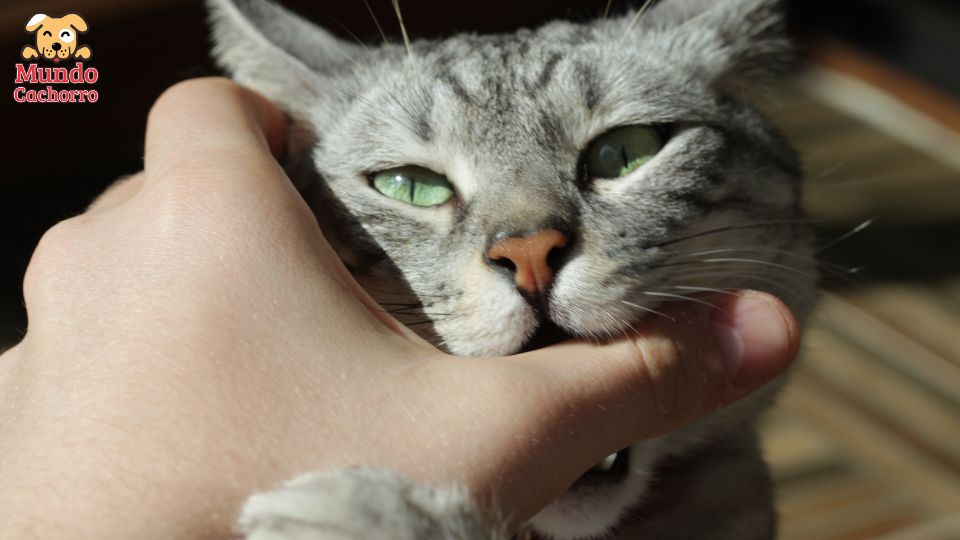Cats are mysterious and fascinating beings that can bring a lot of joy to our lives. However, on many occasions their behavior can be disconcerting. One of the most common behaviors that can confuse cat owners is when the feline decides to bite during a petting session.
Indice
Anxiety in cats: How to calm it
Understanding why your cat bites you while you are petting it can help you strengthen your relationship with it and avoid potential conflicts. Below, we will explore some of the reasons behind this behavior of your charming feline.
Why your cat bites you
In this post we have prepared a series of reasons why your cat bites you while you are petting it. You must always remember that michis are very sensitive creatures to stimuli. In addition, their feline nature can manifest itself in many different ways and biting can be one of them.
Cats that bite
Excessive stimulation:
Some cats have a low threshold for tactile stimulation and can be easily overwhelmed during petting. When this happens, they may respond with a bite to express their discomfort. It is important to pay attention to your cat’s signals, such as body language and meowing, to avoid overstepping your cat’s boundaries.
Aggressive play:
Cats are predators by nature, and can sometimes mistake petting for hunting games. If your cat becomes overly excited during a petting session, she may begin to play more roughly, which could result in accidental bites.
Communication:
Cats use a variety of signals to communicate, and may sometimes bite gently as a way of expressing affection or setting boundaries. If your cat bites you during petting, he may be trying to tell you that he’s had enough or would prefer that you play differently.
Pain or discomfort:
If your cat is experiencing physical pain or discomfort, it may be more likely to bite during petting as a way of protecting itself. If you notice a sudden change in your cat’s behavior or if he seems uncomfortable when you touch him in certain areas, it is important to take him to the veterinarian to rule out any health problems.
Insufficient socialization:
Cats that have not been properly socialized from an early age may have difficulty understanding appropriate play boundaries. If your cat bites you frequently during petting, it may be helpful to work on socialization and training to help him develop more effective communication skills.
Why cats bite
How to handle biting during petting
- Watch body language: Learn to recognize signs that your cat is starting to feel uncomfortable, such as tail wagging, ears back, or fur bristling.
- Limit petting time: Keep petting sessions short and pleasant.
Stop before your cat shows signs of discomfort. - Offer play alternatives: Provide toys and other forms of interaction to channel your cat’s energy and hunting instinct.
- Respect their boundaries: Every cat is different, so it’s crucial to respect your cat’s individual preferences for petting and physical contact.
Learn to know your cat
In short, cats may bite during petting for a variety of reasons, ranging from overstimulation to aggressive play or physical discomfort. Observing your cat’s behavior and learning to interpret his signals can help you better understand his needs and strengthen your bond with him. It is always important to treat your cat with love and respect, and seek professional help if you have concerns about your cat’s behavior. Remember that it is a living being that deserves every consideration for its nature.








